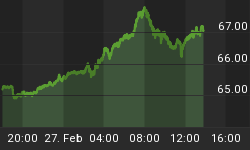The recent move by two major cryptocurrency players to seek regulatory approval has started drawing accolades from industry experts, including Fundstrat co-founder Tom Lee--the only Wall Street analyst to cover Bitcoin.
Lee says that the latest development by two major crypto exchanges, Coinbase and Circle, to seek SEC approval is good for future Bitcoin prices.
Why? Because the uncertainty coming from the regulatory overhang has only served to depress demand for cryptocurrencies by preventing institutional investors from participating in the market.
Coinbase, a leading U.S.-based cryptocurrency exchange, has announced its intention to become a fully SEC-regulated broker-dealer. Meanwhile, Goldman Sachs-backed crypto platform Circle is seeking a federal banking license and an SEC registration that would enable it to operate as a brokerage and a trading venue.
Regulation a Double-Edged Sword
The moves by the pair appear to be aimed at appeasing watchdogs that have repeatedly threatened to rein in on the multi-billion-dollar industry.
If successful, Coinbase will be in a position to offer its customers a wider variety of blockchain-based securities and also be subject to more federal oversight. Related: Investors Scramble To Secure Property On The Korean Border
Coinbase has largely restricted its offerings to just four assets--Bitcoin, Bitcoin Cash, Ethereum and Litecoin--amid concerns that regulators would deem many digital tokens to be securities.
Both regulated platforms will now be able to legally participate in the lucrative ICO industry.
Despite recent crackdowns on initial coin offerings in the U.S. and China, startups have still managed to raise $9 billion in the first five months of 2018 alone.
Yet, regulatory oversight in the crypto industry can be a double-edged sword.
On one hand, it can encourage greater participation by large investors.
Case in point is Gibraltar, which has lately become a refuge for blockchain startups. The tiny peninsula with a population of around 35,000 has been able to achieve what has eluded most other countries--crafting a well-defined regulatory framework for distributed ledger technologies (DLT).
Specifically, Gibraltar does not consider most tokens as securities. That's in sharp contrast to the situation back in the US where the SEC has said most tokens will be considered as securities. This has encouraged large crypto companies including European trading platform eToro and Hong Kong-based Xapo to seek a license in the country.
On the other hand, regulatory crackdowns have in the past proved to be a major headwind for Bitcoin and crypto prices in general.
A good case in point is SEC's March announcement that digital assets would be required to register with the agency that pushed Bitcoin prices below $10,000, a level they have failed to breach ever since.
Going further back in time, Bitcoin lost about half of its value when the company launched a controversial internal investigation into possible fraudulent practices and market manipulation on the platform.
Related: Dennis Rodman Aims To Unite North Korea And The U.S.
Bitcoin prices also dropped significantly after China and South Korean slapped a ban on cryptocurrency trading. Additionally, the introduction of Bitcoin futures in December 2017 caused wild price swings for the leading cryptocurrency that forced trading to be halted three times over a six-day span.
Ultimately, crypto regulation is largely a welcome move for the consumer. The SEC has been working hard to educate investors on potential pump-and-dump schemes, which are rife in the industry. More stringent regulation in the space is likely to reduce losses suffered by investors from such scams.
By Alex Kimani for Safehaven.com
More Top Reads From Safehaven.com:
















